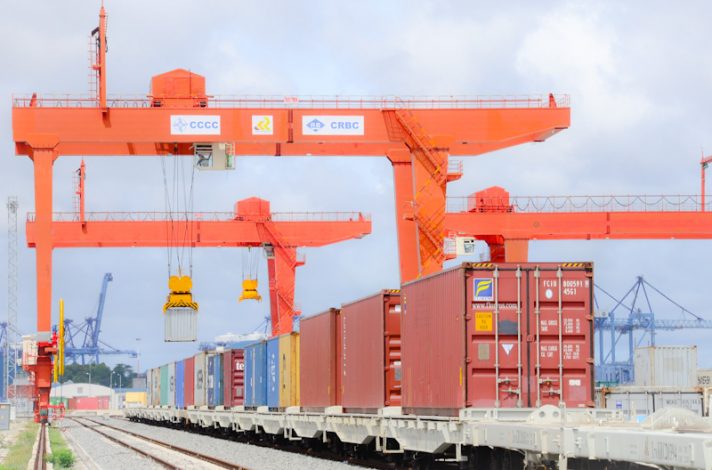S&P Global Ratings has downgraded Kenya’s outlook from stable to negative over high debt that could be worsened by the Covid-19 pandemic.
However, it affirmed Kenya’s ratings at ‘B+/B’.
“The Covid-19 pandemic will slow Kenya’s GDP growth significantly in 2020 and weigh on its already weak public finances,” S&P Global said.
“The ratings could also come under downward pressure if the ultimate economic fallout from the pandemic and weaker policy momentum derailed Kenya’s efforts to curb its twin fiscal and external deficits, pushing external debt up, and/or weakening external liquidity beyond our current projections.”
The firm says “Although external financial support, including from the International Monetary Fund (IMF), will help fund Kenya’s twin fiscal and external deficits in 2020, external debt will rise sharply in 2020 and remain high in 2020-2023.”
RELATED
- Moody’s Revise Outlook on Kenya Credit Rating to ‘negative’ on Bad Debts
- Fitch Revises Kenya’s Outlook to Negative Cites Weak Track Record of Fiscal Consolidation
In a recent report, ‘Kenya Public Expenditure Review 2020: Options for Fiscal Consolidation after the COVID-19 Crisis’ the World Bank says the COVID-19 crisis has upended Kenya’s previous fiscal consolidation plans and calls for a new, comprehensive approach to fiscal planning. In the short-term, fiscal policy will need to be geared towards effectively combatting the health crisis and severe shock to Kenya’s economy.
“As the crisis abates and over the medium-term, the government will need to resume its fiscal consolidation effort to maintain sustainability, crowding private sector-led growth, and rebuild fiscal buffers. These efforts can be supported by further expenditure efficiency measures identified by this PER, complemented by additional revenue mobilization and strengthened debt management.,” the report reads in part.
The report identifies both short-run and medium-term fiscal savings with government’s wage bill management, procurement, and public investment management.
According to Felipe Jaramillo Coun try Director for Kenya, Rwanda, Somalia, and Uganda World Bank, “Efficient wage bill management and completion of ongoing reforms to payroll systems would help deliver expenditure savings.”
The PER shows that cleaning and regular audit of the payroll to get rid of ghost workers, strengthening of payroll systems control, and rationalization of allowances could result in potential fiscal savings of about Ksh.19.4bn (or 0.2 percent of GDP).
The consolidation of demand and centralized procurement for homogeneous goods optimizes the government’s purchasing power and bring large price discounts.
The PER finds that improving efficiency and competition in government procurement could deliver approximately
Ksh.85.9bn (or 0.9 percent of GDP) in fiscal savings.
Lastly, the establishment of a public investment project baseline and rationalization of dormant projects (approximately 522 projects) is critical.
Cancellation of even a third of these dormant projects would deliver one-off expenditure savings of about Ksh.150bn (1.5 percent of GDP). In the context of COVID-19, a moratorium on any new projects that do not directly support the response to or the recovery from the pandemic should be put in place.




